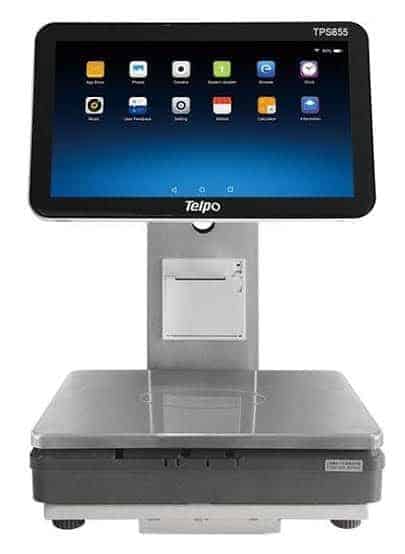
POS scales connect to your overall POS system and automate the pricing and check out of items sold by weight.
Most, or all of us, have been to the supermarket and purchased fruits, vegetables, or meat by their weight. And those of us who have done so have seen a POS system with a scale in action.
What is a POS Scale? Do You Need One?
Think about that time recently when you were checking out at the supermarket and the employee at the cash register placed your bananas on a scale before placing them in your bag. That employee may have used a POS scale to weigh your items and calculate their price.
Some stores—and POS scales are used by many different types of stores—use a normal scale and then do the pricing calculation on a calculator.
That can work if you run a small business and don’t sell many items by weight. But if that’s the case, you would be in the minority. These days, nearly any store that sells produce, meat, or any other item sold by weight will use a POS scale.
If you do need to use a POS scale, it should be integrated into an overall POS system.
Integrating your POS Scale into an Entire POS System
Because digital POS scales are specifically designed for use with a larger POS system, POS scale integrating is necessary.
The entire POS system is comprised of what is called peripheral devices. In other words, a closed network of individual components makes up your system.
Data Shared Across the System
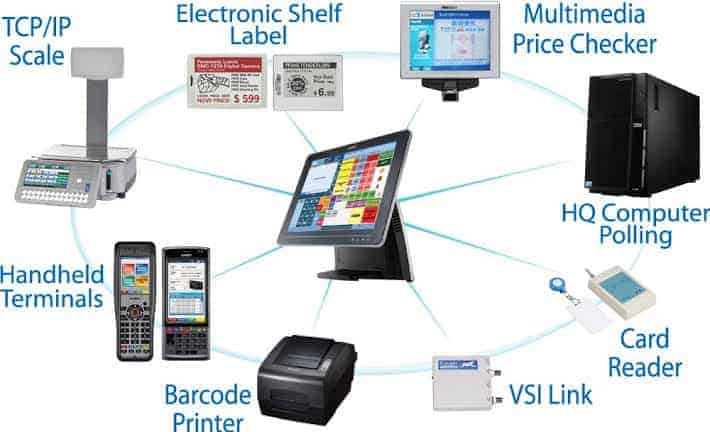
You simply connect your POS scale to one of the ports on your main POS terminal. Then the information from it flows into the terminal, and vice versa.
For example, let’s say that you are weighing lemons. On your main terminal touchscreen, you enter the code for lemons. Then place the lemons on the scale.
The scale sends back the weight, and the terminal—in other words, your POS system—calculates the price of that customer’s lemons based on the price per kilo or pound that you have pre-configured in your POS system.
Then, the resulting dollar amount is added to the overall balance of the customer’s bill and the lemons go into the bag.
Automation and Time Savings

A POS scale used as a peripheral component in your POS system makes keeping track of inventory and bookkeeping a breeze.
A POS scale also expedites the entire checkout process, allowing stores and shops to move more of their products in less time.
This type of point of sale automation and data collection can be critically important for the success of a business.
Who Uses POS Scales?
We already mentioned supermarkets that sell produce and meats by the pound or kilo. But there are myriad types of businesses that leverage and benefit from POS scales. Here, we’ll cover a handful of these business types to provide you with a broader context of the use and importance of POS scales.
Delis
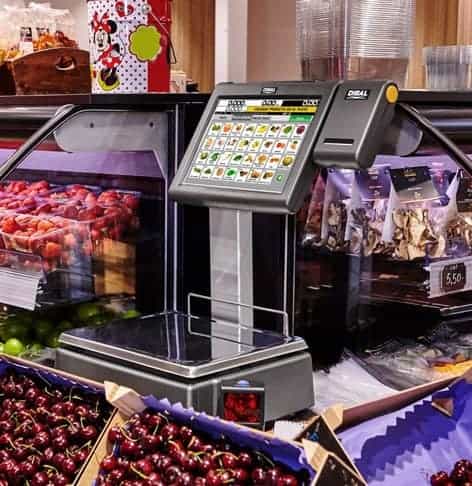
Whether a patron wants to purchase sliced ham, turkey, salami, pastrami, corned beef, or any type of cheese, they will be purchasing it by its weight.
Also, many delis sell pre-prepared dishes such as salads, rice, casseroles, etc. All of these pre-prepared items are also sold by weight. This makes using a POS scale doubly important to a deli.
Seafood Markets
Just as a supermarket would use a POS scale to weigh the purchase of produce, a seafood market would use one to weigh the amount of seafood being purchased by a patron.
In a seafood market, virtually everything sold must be weighed. They are one type of establishment that must rely quite heavily on POS scales to keep things moving and keep the lights on.
Bulk Food Vendors
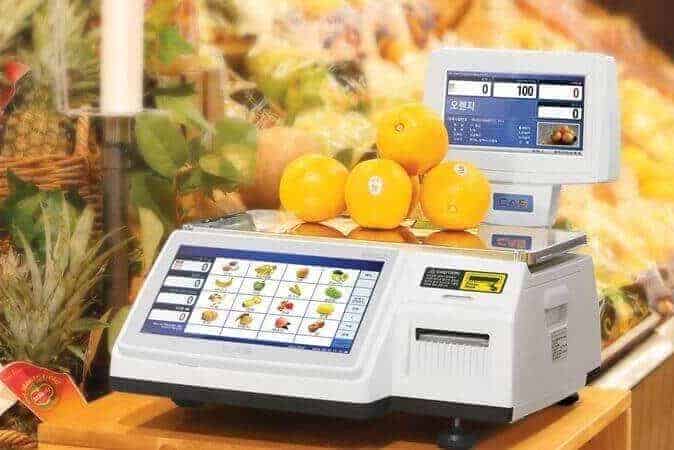
Many of these are health food stores and sell items such as dry beans, nuts, dried fruit, flour, etc. All of this is sold by weight and necessitates the use of a scale to determine the prices of the quantities of these goods being purchased.
To reiterate, these stores could, in theory, use a regular scale and calculate prices using a basic calculator.
The problem with this? The amount sold does not get synced back to the POS system and subtracted from the store’s inventory. That part must be done manually and leaves the door open for human errors during price calculation.
Stationary “Farmers’ Markets”
Here, we are referring to a store that sells only fresh produce from local farms. You see them in many locations, from the middle of Manhattan to the side of the highway on old country roads.
Just like the produce being sold in a supermarket, the items being purchased must be weighed before they are sold.
And because the entire store depends on selling produce by weight, stationary farmers’ markets are among the businesses most in need of digital POS scales and an integrated POS system.
Salad Bars and Buffets
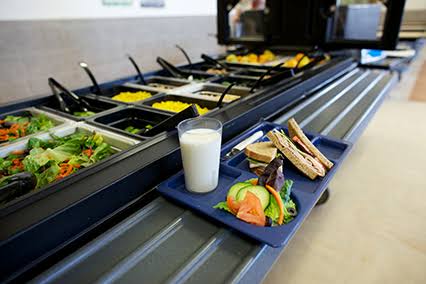
Typically, a customer will fill a to-go container with the amount of each dish they want. Then, the overall bulk of the food purchased is weighed by the POS system’s integrated scale.
In the context of buffets that sell food to go, there is really no other way to measure the amount being sold and the associated price other than by using a POS scale.
Which Types of POS Scales Are Available?
Above, we have been discussing scales that are integrated into a POS system. And we will continue to focus on this type of scale here because we don’t recommend purchasing any type of scale that doesn’t integrate into a POS system.
Here are a few options you have when evaluating your business’ needs and a POS scale that meets those needs.
Scales that Only Weigh Items
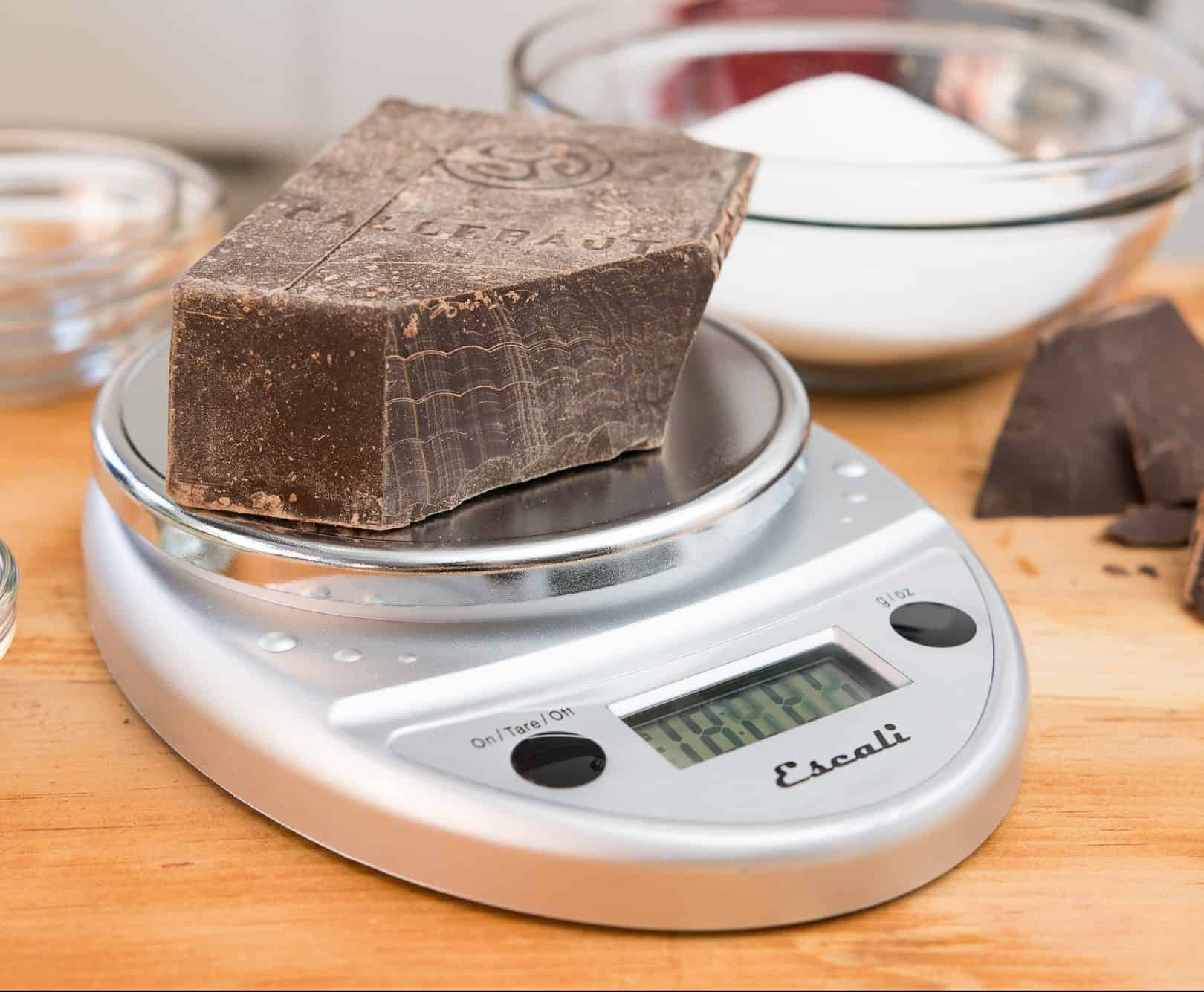
When using one, you can first type in an item’s code and pull that item upon your POS touchscreen. Then you instruct the system to weigh the item and send that weight back to your POS terminal.
Once there, the terminal calculates the price based on the price per weight that you have configured your system to use for that item.
Once calculated, the associated price is added to the customer’s bill and the next item can be weighed.
If you don’t need to weight many items in your store, this is probably the best choice for your business. Although these scales are the most basic type covered here, they still utilize advanced technology to get the job done.
For example, they are normally accurate in the weighing process and can provide accurate weights to the hundredth of a pound or more.
So, although you’re purchasing a more basic scale, you don’t have to compromise on accuracy.
An inaccurate scale can cost you loss of revenue by undercalculating an item’s weight, so an accurate measurement is essential.
These scales can normally be purchased for as little as $400 or less. Although, as with any technological hardware you purchase, you get what you pay for. More expensive models will deliver more robust features—or at least they should!
Scales that Calculate Price
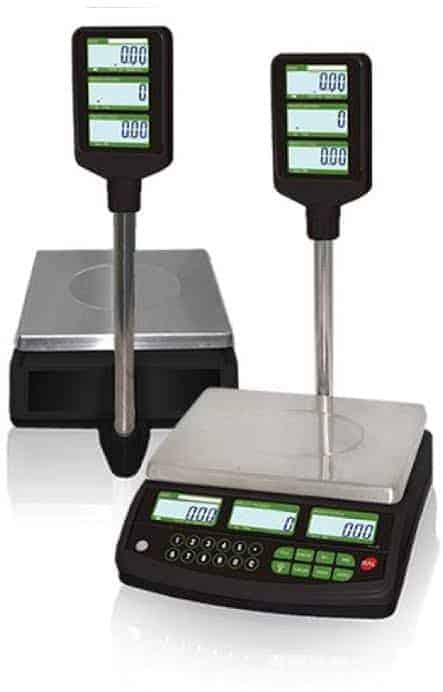
When would you need one of these? Let’s look at an example to help you understand how and when these scales would be necessary.
Have you visited a large supermarket with a bakery section, produce section, butcher section, and aisles upon aisles of packaged goods?
When you arrive at the supermarket’s deli you may ask the deli attendant for a pound of sliced honey-cured turkey breast.
The attendant retrieves a giant turkey breast and proceeds to place it on the slicing machine. As the large circular blade starts spinning, slices of turkey begin to fall and are collected. They are then placed into a plastic deli bag and placed on a POS scale.
But, this scale must also print out a sticker that lists the price and includes a barcode. It does so by using the code the deli attendant entered into the scale’s punch pad or touchscreen monitor.
It then calculates the cost of one pound of that particular turkey breast, then prints a ticket with the weight and price all included. The attendant uses that sticker to seal the bag and passes you your turkey.
That is how a POS scale that calculates price operates. You can expect to pay anywhere from $500 to $1000 or above for a robust scale that also calculates price.
POS Scales with Scanners
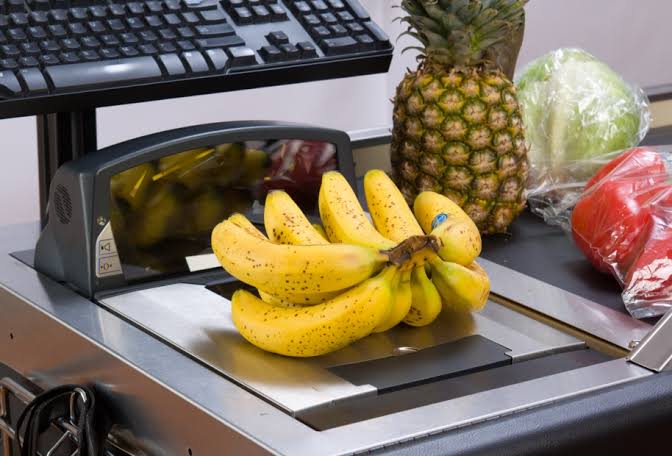
However, that customer is likely to have a jar of peanut butter, a bag of potato chips, or another packaged item in their shopping cart. These items have barcodes that must be scanned.
It is impractical to have two devices taking up counter space at the checkout counter. That’s why the two are often combined into one, complex tool: a POS scale with a scanner.
The store clerk can weigh and charge customers for items sold by weight. They can also scan a jar of pickles with the same machine. And all of the information gathered flows into the same POS system and is added to the same bill.
Because these machines are so powerful and leverage complex software to function at a high level, they are expectedly more expensive than the other two types of scanners covered above.
You can expect to pay somewhere in the range of $1,500 to $2,500 for a POS scale with a scanner.
Popular Vendors
You can find a variety of POS scales on the market. As always, we recommend purchasing any peripheral component as part of an overall POS system.
Having one unified system helps eliminate errors caused by incompatible features in components from different vendors.
A few of the most popular POS scales on the market are produced by the brands listed below. Be sure to do your research before committing to a purchase. You always want to define your needs first, then shop for the option that meets all of your needs—or as many as possible.
A few of the most popular vendors are:
- Brecknell
- Honeywell
- Acom
- CAS
- Rubbermaid
- Avery Weigh-Tronix (Parent company of Brecknell)
Ready to Start Weighing?
Now you are armed with detailed information about POS scales, how they work, types available, and popular vendors. It’s time to start looking for a scale that will best support your business.
We provided helpful information above to get you well along the path to selecting a POS scale. As always, we recommend doing your own research after defining your needs so you can find the option that works best for you.
You can also leverage POS review sites because they offer free recommendations for POS scales and POS systems in general—all based on your unique needs. Many even can secure a discount for you when you decide to purchase.
For example, POS Quote can help you find the right POS system and associated peripheral components to meet your business needs. Plus, they can also offer you a discount of up to 30% on a POS system if you go through their site to make your purchase.
To do that, visit the POS Quote homepage and complete the yellow form to receive a recommendation, free quote, and a discount on your new POS system.
